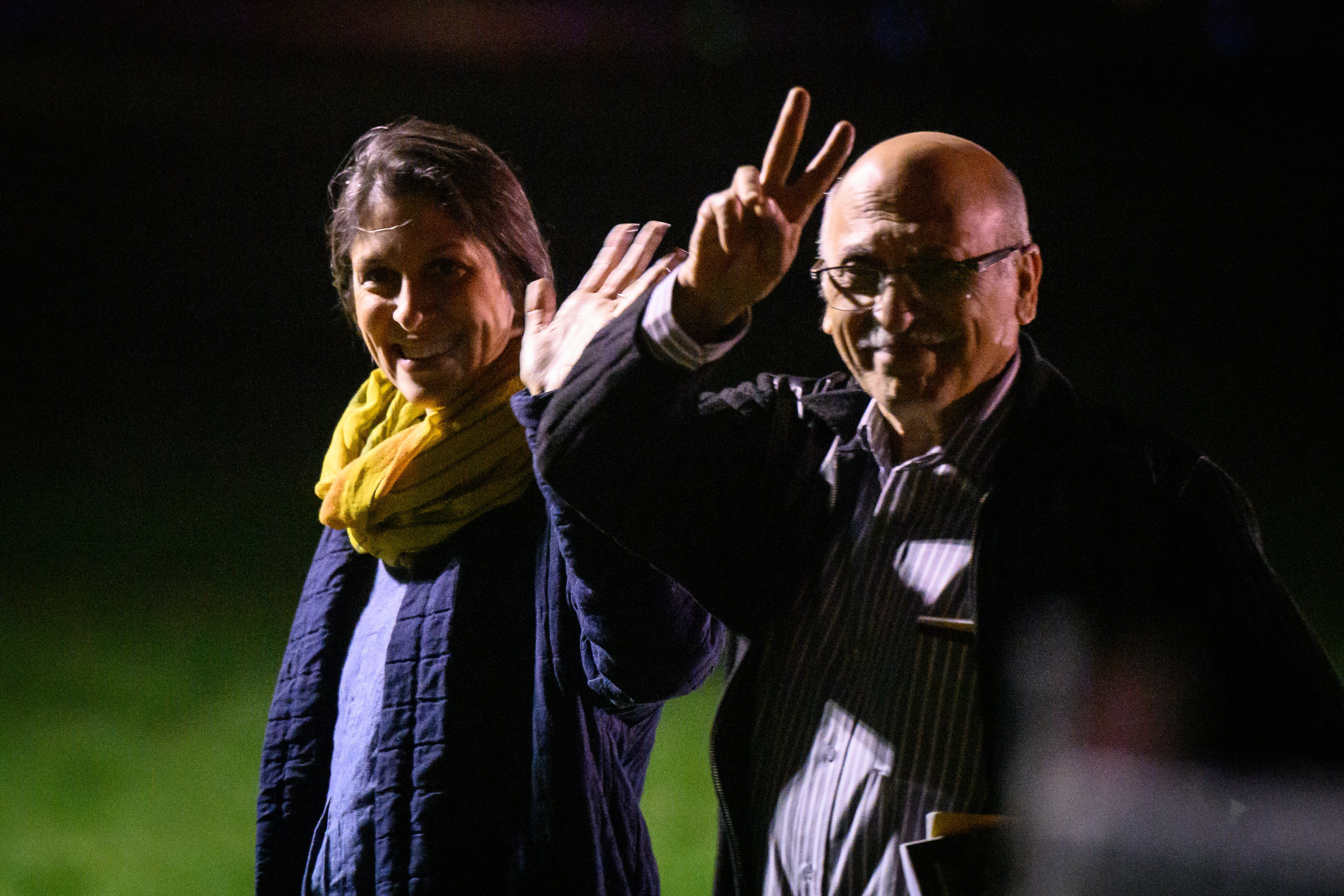Government rejected chances to free Nazanin Zaghari-Ratcliffe, say MPs
Ministers distressed Nazanin and others with ‘offensive’ comments – as evidence shows chances for release missed

The UK government imposed “significant suffering” on Nazanin Zaghari-Ratcliffe and Anoosheh Ashoori by rejecting changes to free them from captivity in Iran, a damning report by MPs has found.
Early opportunities to secure the freedom of the British-Iranian dual nationals were not taken, according to the foreign affairs committee report into the handling of hostage diplomacy.
The report criticised the “considerable ministerial transience” in recent years, after Ms Zaghari-Ratcliffe questioned, on her release, why it took five foreign secretaries over six years to bring her home.
The UK agreed to pay a £400m debt to Tehran at the time of Ms Zaghari-Ratcliffe and Mr Ashoori’s release in March 2022.
But the terms of their release were no different to those discussed in 2017, the evidence shared with the committee shows. Middle East minister Alistair Burt had pushed for the repayment of the debt back in 2017.
Ms Zaghari-Ratcliffe served five years in prison and was convicted of plotting the overthrow of Iran’s government, a charge that she has continuously denied.
The cross-party report criticised both Liz Truss and Boris Johnson, claiming they had “let down” families by sharing information in a way that was “counterproductive”.
The report also highlighted Mr Johnson, then-foreign secretary, saying in 2017 that Ms Zaghari-Ratcliffe had been teaching journalism in Tehran – comments which were blamed for exacerbating her plight following her arrest for alleged spying.
Ms Truss did not stand by an arrangement agreed with US officials that UK-US-Iranian trinational Morad Tahbaz would be released alongside Mrs Zaghari-Ratcliffe in March last year, and failed to let his family know, according to the report.
“Liz Truss eventually called the family to say that ‘Morad is now a US problem’, implying that she would not put further effort into his release, and she did not have time to speak to them further,” MPs said.

Ministers also “deeply distressed” Ms Zaghari-Ratcliffe and other British citizens imprisoned abroad through poor communication – including “speaking offensively” to their families, the chair of committee said.
Senior Tory MP Alicia Kearns said the treatment of some hostages’ families had been “insensitive and hurtful”.
Referring to former foreign secretary Ms Truss’s handling of the case of a British-born environmentalist held in Iran, she said “the most heinous failure of a minister” was to tell a family “you’re no longer our problem”.
There were also examples of ministers “getting the names of hostages wrong”, Ms Kearns told Times Radio. “For dual nationals their Britishness too often they felt was in question,” she also said.
The committee called for a director for arbitrary and complex detentions. “That is somebody who would have a direct line to the prime minister, who can make sure that we have the cohesion, the continuity, the focus, the creativity that is needed to get our people home,” Ms Kearns said.
“Because the reality is that one of our most important findings was if you can get people home before they are charged, that is your best window of opportunity.”
She also said “we have to call a spade a spade”, as there is currently “too much nervousness within the Foreign Office about calling out state hostage-taking for what it is”.
Amnesty International welcomed the findings of the report, “which should lead to a major policy change”. Sacha Deshmukh, UK chief executive, said the group had warned that the UK “simply wasn’t rising to the challenge of dealing with situations that went well beyond ordinary miscarriages of justice”.
A Foreign, Commonwealth and Development Office spokesman said: “Consular officials are available 24/7 for families to receive tailored support. The foreign secretary and FCDO ministers are fully engaged in complex cases and have raised concerns with foreign governments.
“The best interests of British national detainees is at the heart of our consular work and we support and work with their families wherever we can.”




Join our commenting forum
Join thought-provoking conversations, follow other Independent readers and see their replies
Comments